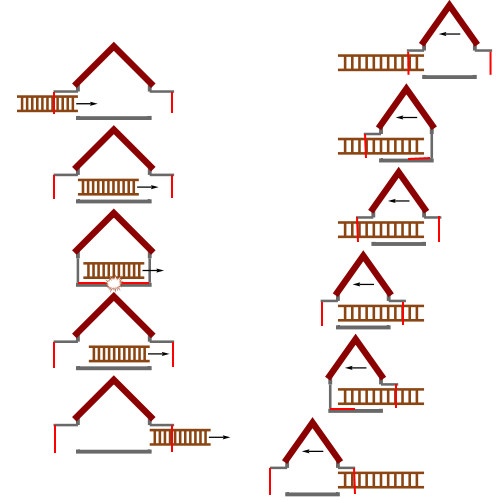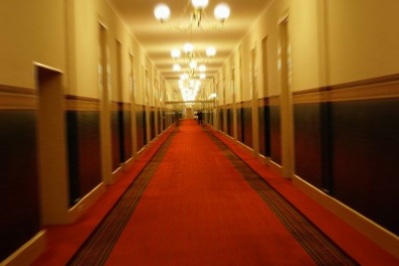What is Time

WHAT IS TIME
According to the Oxford Dictionary, Time is:
a continuous process of existence and events from the past through the present to the future.
The short definition of Time that a physicist would give you is:
a non-spatial continuum in which events occur.
The definition that is accepted as complete and scientifically sound is:
a continuous, measurable quantity in which events occur in sequence from the past, through the present, to the future.
The definition that Wikipedia gives is:
Time is a dimension in which events occur in order from the past, through the present to the future, and also a measure of the duration of events and the intervals between them.
Note that scientific definitions of Time hold that events manifest within it.
Which raises a chicken-and-egg question: which comes first, the event or the time?
Would there be time if there were no events and would there be events if there were no time?
Let’s do a thought experiment and see what we get as a result.
Which is first, the time or the event?
Imagine a universe without any movement, a universe of space with stationary objects and elementary particles.
Such a universe is, of course, impossible, because matter manifests itself through the motion of elementary particles, but for the sake of the thought experiment, let everything in the universe stop moving.
According to the definition of time, we could not speak of Time in such a fictional universe because there are no events. Therefore, in this fictional universe, there is NO TIME.
Now, let there be an object ‘A’ in it, which goes round in a circle.
A complete revolution around the circle is an event. Is it correct to say that this event occurs in time, after we have already established that there is no Time in this universe? If this seems like a logical fallacy to you, and you insist that the event really takes place in time, I would ask you to prove it by measuring the time it takes for this event to occur. How long does object A take to make one revolution? You cannot determine? Why? Because in this fictional universe, nothing moves but one object.
But – you will say – the fact that we cannot measure Time does not mean that there is no Time. This is exactly what it means, because according to the definition, Time is also a measure for measuring the duration of events.
Let us now place next to object ‘A’ a rotating vane ‘B’.
Now can you determine the time it takes for ‘A’ to make one complete revolution?
Of course, you can.
The time it takes ‘A’ to make one complete revolution will be equal to a certain number of revolutions around the axis of the blade ‘B’.
Therefore, the true definition of time is:
a relation perceived by consciousness between two or more simultaneous events.
It is the only definition of Time that cannot be logically disproved and will stand up to any thought experiment and logical challenge. It stands on the simple expression „it happened while something else happened“. Whether we measure time by rotations of the earth, or with the oscillations in an atomic clock, we will always have at least two events that our consciousness will match to create time.
For science, however, placing Consciousness in the definition of Time is absolutely unacceptable.
Scientists will argue that the relationship between the two events exists even without being accounted for by consciousness. Therefore, even if the definition is true, Time will exist without the presence of Consciousness.
Such an objection would be wrong because „ratio“ is a mental concept resulting from conscious comparison. If there is no conscious comparison, the concept of „ratio“ does not exist. Then things are just separate unto themselves.
Science stubbornly refuses to consider consciousness as an integral part of the universe. This is the biggest brake that stops us in our understanding of the universe, and I would even say – in the development of technologies.
Isn’t it illogical and ridiculous that we have all our knowledge thanks to the conscious observation and analysis of the universe, but at the same time we do not include Consciousness as an integral part of its construction?
Scientists maintain that we must not confuse objective science with subjective philosophy. And here they are most wrong.
Why?
Let us assume that we have only one sense – that of touch. Then for us the universe would be limited to what we can touch. We would not perceive the universe as we perceive it now, and for us it would have completely different properties and qualities.
Yes, scientists would say, but it wouldn’t change the true state of the universe. To which I would object thus: what we perceive with our five senses also does not give us an accurate idea of the universe, for if we had a sixth, seventh, and eighth sense, we would be better aware of its state.
What does this have to do with philosophy?
According to philosophy, we could not think that for which we have no senses for, and it would be non-existent, just as non-existent to us now is anything that cannot be measured (perceived) beyond our sensibility, limited by our five senses.
This philosophical statement is based on absolute logic and tells us that the world does not exist outside of our consciousness.
Consciousness builds (creates) the universe from the information brought to it through our five senses. If there were six senses, the universe would be different. It would be different if we had two, one or three senses.
And to make it even more clear, if we lacked sight, our science would not be based on that sense, and scientists could not think that sense, they would not have the concept of sight to argue that although we do not see the light, it exists. It’s so simple that I’m embarrassed to even write it.
But let’s go back to Time.
We have come to the point that in order for Time to exist, a consciousness is needed to observe events and relate them to one another.
The absence of Consciousness in the Universe only means the absence of a concept of Time. Things continue to be the same in a Universe that lacks conscious observation: motion is there, events are there, matter is there. All that is missing is conscious observation to create the concept of Time.
Consciousness creates Time!


